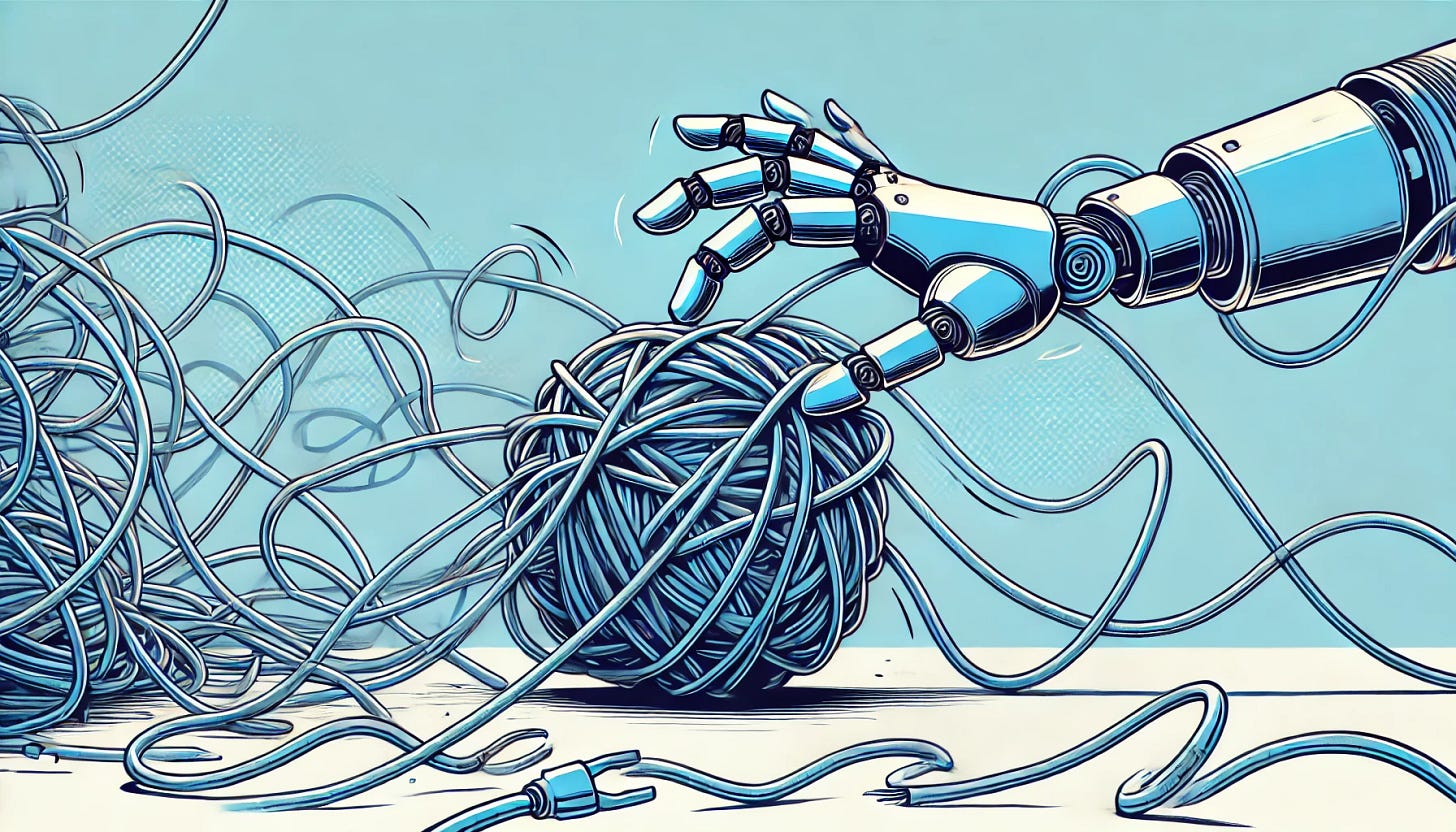If You’re Not Refactoring Every Day, You’re Making a Mistake
Small Daily Refactors Prevent Big Headaches: How Regular Cleanups Save Your Team from Code Spaghetti, Tech Debt, and Customer Frustration
Let me take you back to a time when I worked on an old internal product — let’s call it Garbo. Now, Garbo wasn’t glamorous. It wasn’t directly responsible for generating revenue. It worked in the background, keeping everything running smoothly. That is, until one day, boom — it failed1.
Our customers got seriously irritated. And once that happened, we had to drop everything to fix it.
The codebase? It had been neglected for years. There was duplicate code everywhere, unused features still floating around, and the worst part? Tons of special-case logic for every exotic scenario you could think of. Business logic was scattered between the UI and the backend, making it nearly impossible to figure out what was actually in use. Testing? Yeah, right. Trying to make sense of the system was like unraveling a huge knot of code spaghetti. Tests were 80% mocking and 20% actual tests. However, most of the time it was unclear if the test did something useful.
It took four senior engineers (including me) months to make Garbo maintainable again. We spent countless hours untangling it just to keep things running smoothly. Time that could’ve been used to build something new 🛠️ was spent cleaning up a mess that could have been avoided.
Ever since then, every time I tackle a bigger refactoring project, I remind my product owner: “You don’t want a second Garbo.” And trust me, you don’t.
What could have saved us from this nightmare? Refactoring. Every. Single. Day. 🛠️
Refactor Every Day ⚙️
Spending just 20 minutes a day refactoring can save you hours of frustration down the road.
Whether it’s simplifying the code you just wrote or revisiting something from the backlog, small improvements make your codebase cleaner, more maintainable, and easier to understand. Refactoring isn’t just about cleaning up — it’s about understanding your code on a deeper level, and that leads to writing better code in the future.
Even the best-written code will eventually need refactoring. Hotfixes, last-minute feature requests, and quick patches can clutter even the most carefully crafted code. No matter how great your code is today, it’s going to need maintenance as things evolve.
Not sure where to begin? Here’s a quick checklist to get you started during your 20-minute daily refactor:
Simplify logic: Break down bloated methods into smaller, more focused ones.
Rename variables: Make sure your variable names clearly describe their purpose 📝.
Remove unused code: 🗑️ Get rid of any dead code that’s no longer needed.
Reduce complexity: Simplify deeply nested conditionals or loops when possible.
Use your tools: 🛠️ Leverage your IDE’s refactoring features, like automatic method extraction, renaming, and refactor hints. These built-in tools make the process faster and less error-prone.
Want to dig deeper? Here are some great resources:
Refactoring.guru: If you’re wondering where to start, this site is packed with refactoring tips. It’s like a treasure chest of practical advice — start here if you’re feeling stuck.
Working Effectively with Legacy Code: If you're battling a legacy codebase (like Garbo), this book is a must-read. Sure, it’s a bit dated, but the advice is solid and will help you tame the beast.
The Usual Suspects: You’ve heard of them — Clean Code, The Clean Coder, and Clean Architecture. These books are classics for a reason and worth your time if you’re serious about writing better, cleaner code.
Martin Fowler wrote about this 13 years ago.2
It Benefits Everyone 🤝
This isn’t just about you — regular refactoring helps the entire team. Cleaner code means fewer bugs , faster feature development, and a much easier time onboarding new developers.
It’s a long-term investment in the health of your codebase.
Make it a habit. Refactoring. Every. Single. Day. Encourage your team to do the same. Refactoring doesn’t have to be a solo activity — pairing up with a teammate or incorporating it into code reviews can help spread the practice across the whole team.
If you’re not refactoring regularly, your codebase is slowly becoming harder to manage. Start making small, daily improvements and see how much easier life gets — for you and your team. Your future self will thank you 😊.
Disclaimer: Take everything here with a grain of salt — this is just my opinion based on my experience. Every codebase is unique, and what works for one may not work for another. Always approach advice with critical thinking and adapt it to your context.
Thanks for reading! Now it’s your turn — commit to just 20 minutes of refactoring each day and start transforming your codebase. Your team and your future self will be grateful!
Due to the COVID-triggered increase in traffic by orders of magnitude.


Agreed! Refactor code every time you pass through it is one of the best practices to ensure code quality
When you get use to it, there is no turn back!